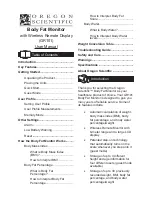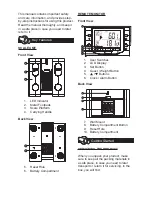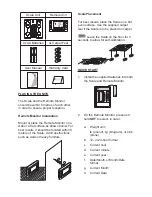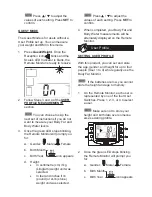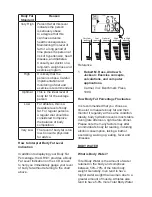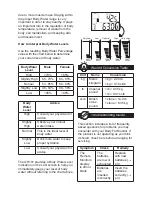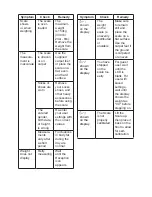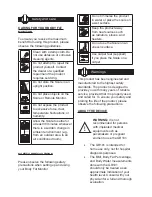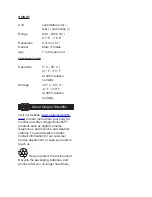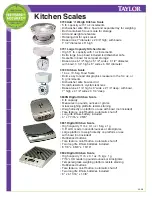
Among overweight people, it is excess fat
and not weight alone that carries health
risks. Since the body comprises elements
of varying densities, weight or BMI cannot
fully measure exactly how much excess
fat a person carries. For example, two
people of the same weight and BMI may
have big differences in body composition.
One may carry excess fat while the other
carry acceptable level of fat needed to
regulate the body. As such, a Body Fat
Percentage measurement is an effective
assessment of your current health level.
Essential fat is necessary for bodily
functions, since it helps to maintain body
temperature an insulate organs and
tissues.
How Body Fat is Measured
The GR101 uses the
method of Bioelectrical
Impedance Analysis
(BIA) to measure body
fat. This method is
completely safe, and is
widely used in the
medical field. The
principle of BIA is as
follows: GR101 sends
a low, harmless
electrical signal through
your body that flows
freely through fluids but
not fat. As such, the
machine measures the
opposition to the signal
and uses this to
calculate the body fat
percentage (along with
the person’s age,
height, and weight).
BIA
Foot-to-Foot
Measuring
Diagram
How to Interpret Body Fat Percentage
Use the resulting Body Fat Percentage
value with the chart below to determine
your current level of health:
ADULT MEN
Body
Fat
Level
Age Group in Years
< 30
30-
39
40-
49
> 49
Very
High
>
28%
>
29%
>
30%
>
31%
High
22 -
28%
23 -
29%
24 -
30%
25 -
31%
Normal
11 -
21%
12 -
22%
13 -
23%
14 -
24%
Low
6 -
10%
7 -
11%
8 -
12%
9 -
13%
Very
Low
<6%
<7%
<8%
<9%
ADULT WOMEN
Body
Fat
Level
Age Group in Years
< 30
30-
39
40-
49
> 49
Very
High
>
32%
>
33%
>
34%
>
35%
High
26 -
32%
27 -
33%
28 -
34%
29 -
35%
Normal
15 -
25%
16 -
26%
17 -
27%
18 -
28%
Low
12 -
14%
13 -
15%
14 -
16%
15 -
17%
Very
Low
<
12%
<
13%
<
14%
<
15%

